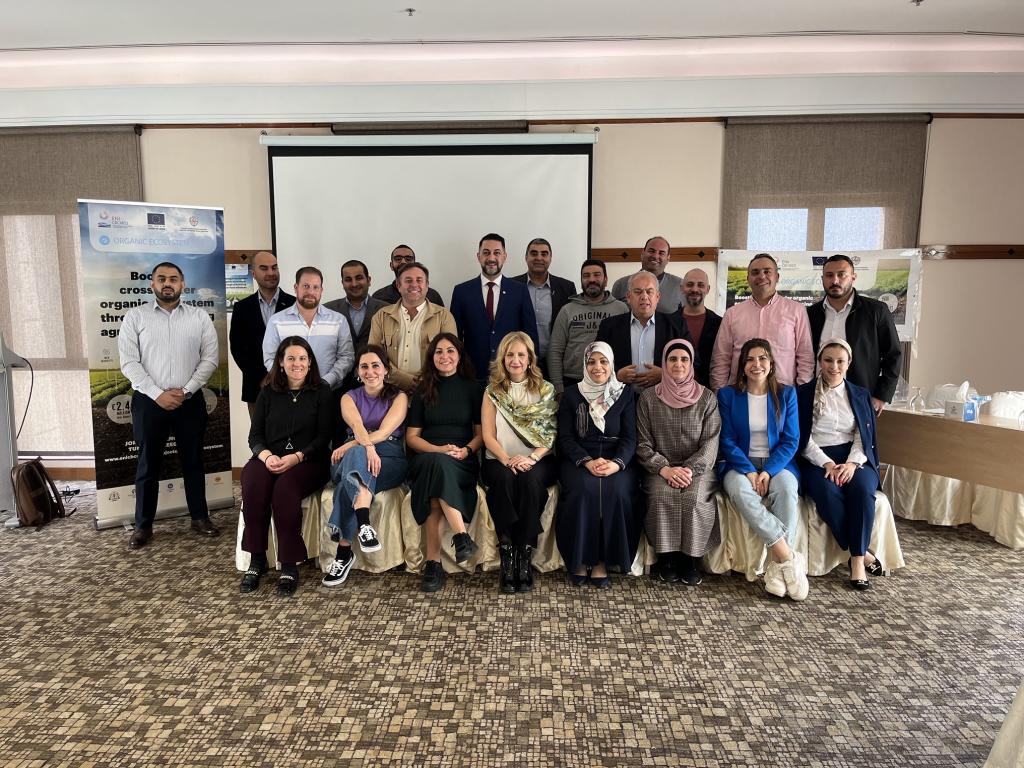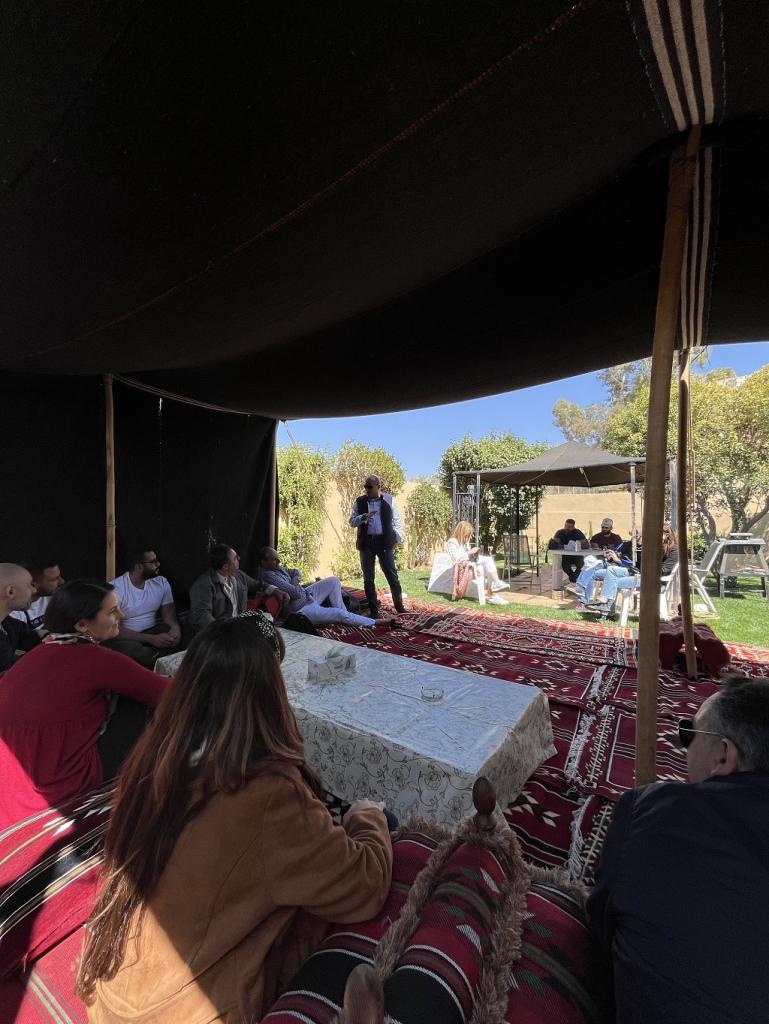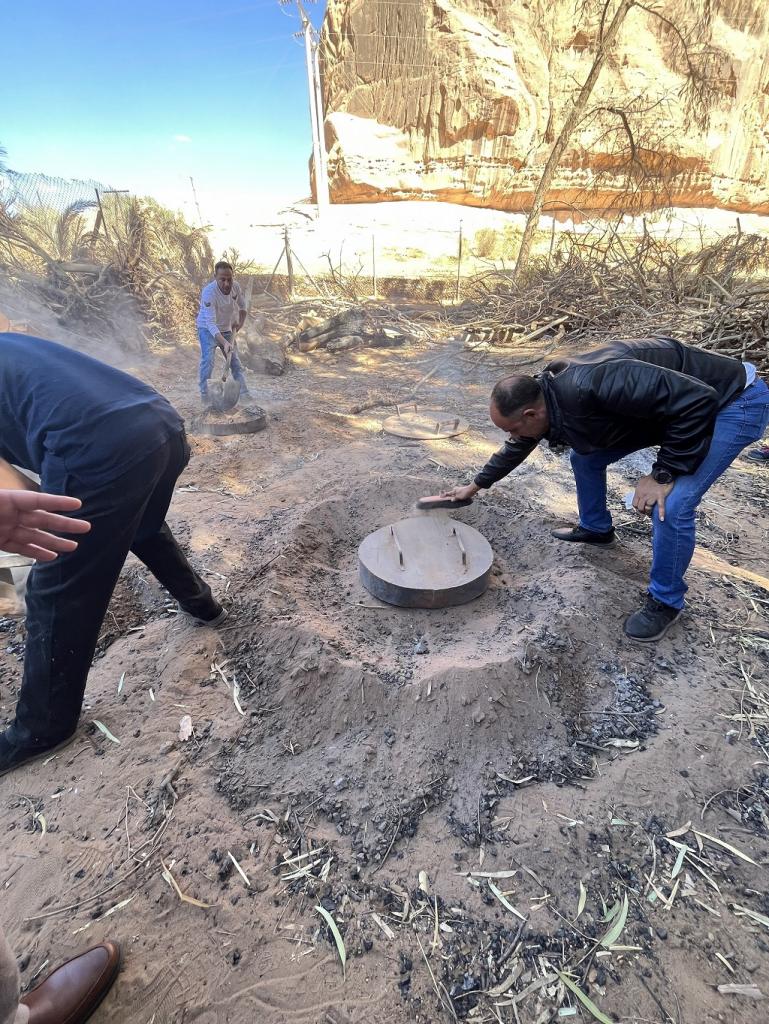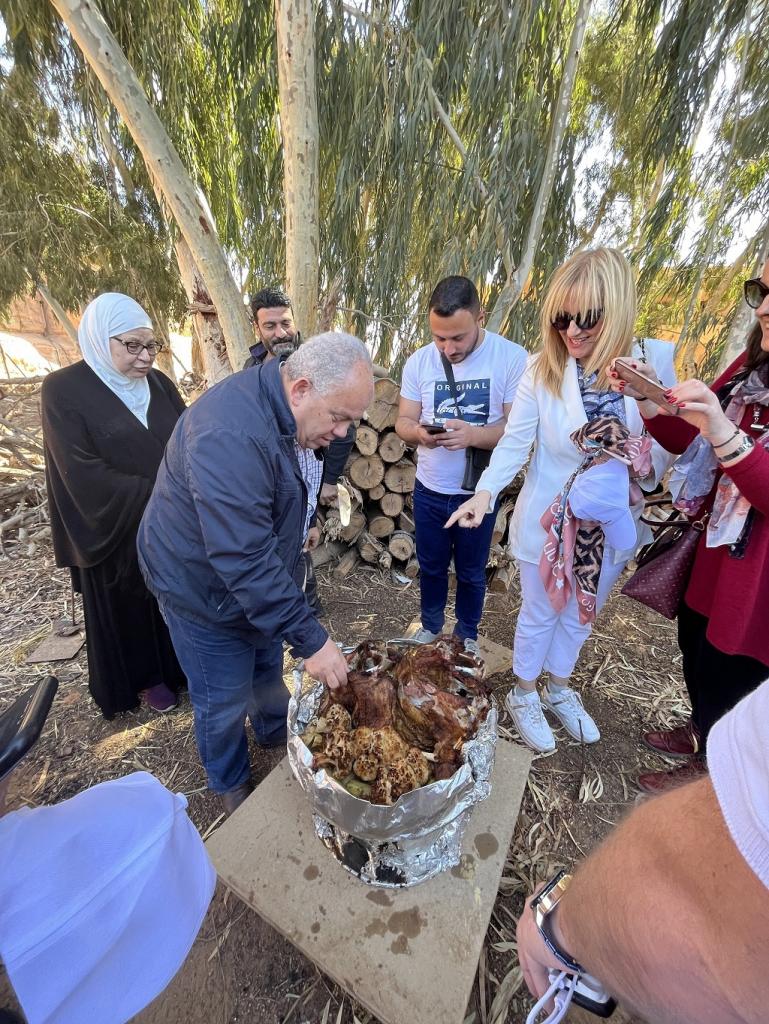Discover how ORGANIC ECOSYSTEM is moving forward a Mediterranean Alliance of Organic Agriculture
From the 6th to the 9th of March, the city of Aqaba (Jordan) welcomed the future of organic agriculture in an unprecedented meeting of agents from across the Mediterranean. The event, organised in the framework of ORGANIC ECOSYSTEM, attracted 40 stakeholders from Jordan, Lebanon, Greece, Spain and Italy, including the project partners and a variety of companies.
The meeting kicked off with a presentation of the successes of the ORGANIC ECOSYSTEM project across the Mediterranean. Moreover, the invited companies had the chance to share their products and business models. The rest of the event had a practical approach:
-
- With focus groups on management, digitalisation, marketing and certification. The companies and the partners of the diferents countries worked together to produce four reporting documents, filled with potential solutions to regional challenges.
- With an assessment of the latest actions, such as the participation of ORGANIC ECOSYSTEM in BIOFACH 2023.
- With a brainstorming session to design next steps of the ORGANIC ECOSYSTEM project on its closing stage, taking into account the needs of MSMEs.

Transforming the sector through first-hand experiences
The participants also enjoyed a visit to Rum Farm: established in the year 1986, it is set in the middle of the Wadi Rum desert, on 2.000 hectares of land. While a desert might seem like an odd choice of location, it makes sense when you learn that, under the Wadi Rum desert and stretching under the border mountains well into Saudi Arabia, there is a large aquifer.
Rum Farm specializes in the cultivation of open field vegetable products, with special irrigation techniques that have been in use since the 4th century BCE. The sight of the crops in the middle of the desert was an impressive experience.
To close the tour, Sijal Majali, CEO of Rum Farms, invited all participants to his house to taste “zarb”, a typical Bedouin dish, consisting of lamb cooked underground for 4 hours. Sharing this incredible dish was a great opportunity to strengthen bonds.



Lessons learned
To close the event, the participants shared the knowledge they have acquired from ORGANIC ECOSYSTEM:
- Mediterranean countries face very similar challenges: water scarcity, lack of government support, high certification costs and increasing communication to consumers about the importance of organic food, for their health and for the environment.
- Organic farming is one of the most effective solutions to combat climate change: healthier soils, aquifers less polluted by pesticides, increased biodiversity, supporting local communities.
- An effective market strategy could be the design of a basket of organic Mediterranean products that would materialise the diversity of products from our region.
- A plausible next step is the creation of a Mediterranean Alliance of Organic Agriculture formed by the partners and the companies involved in the project in order to give continuity to the conversations and work carried out.
The participating companies celebrated the existence of ORGANIC ECOSYSTEM, as it has offered them the opportunity to travel across the Mediterranean to discover new ideas in the sector and establish cross-border synergies.
They referred to the idea of a business alliance as a “big Mediterranean family”.









